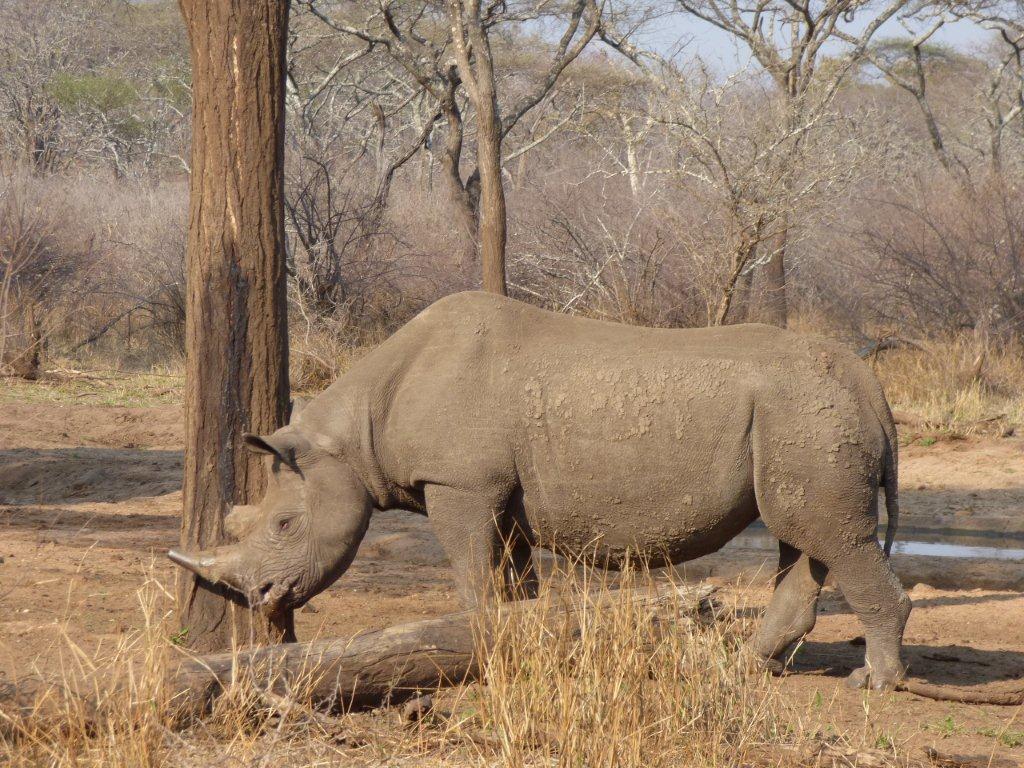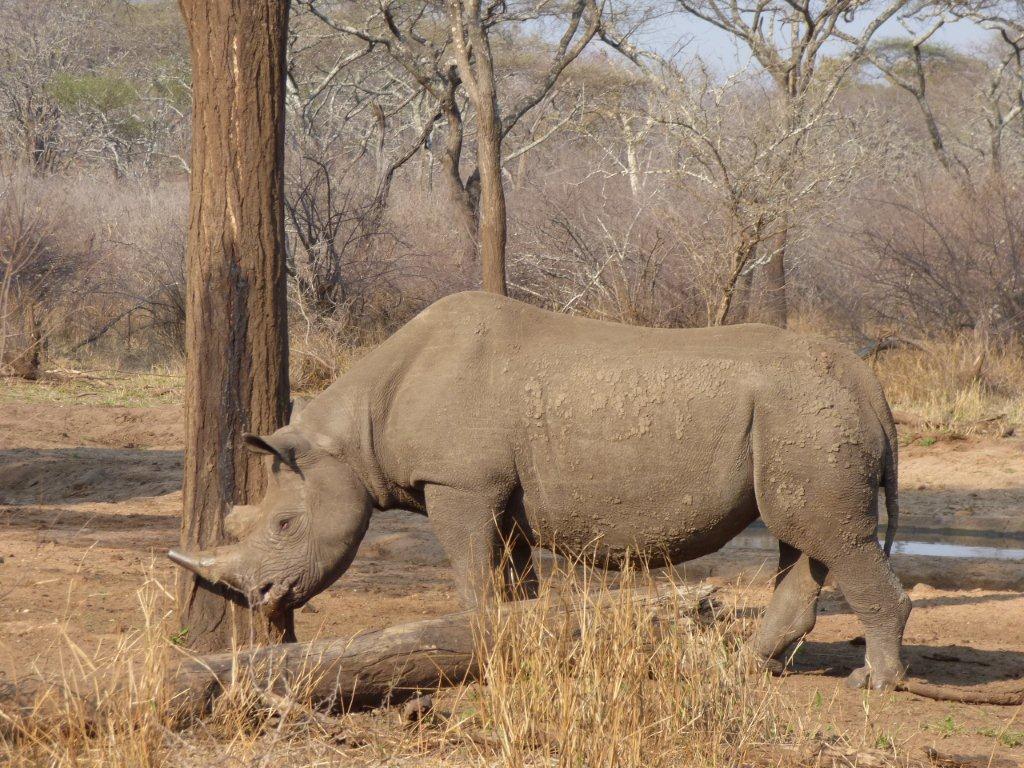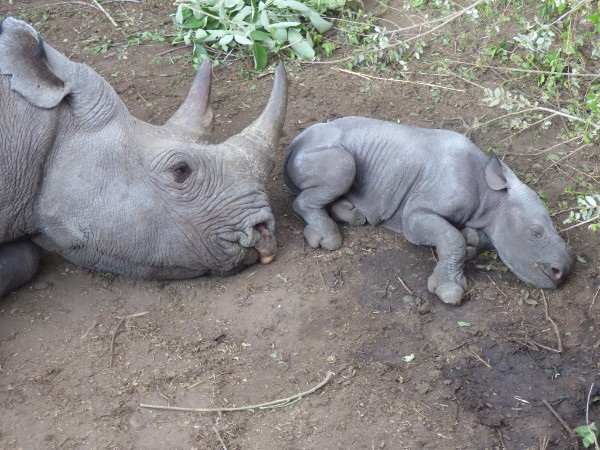Because of YOU… Mabuya the rhino has survived.

 Mabuya has survived.
Mabuya has survived.
Cats might have nine lives, but Mabuya the black rhino is giving them a run for their money. Natasha Anderson, IRF’s Zimbabwe Rhino Monitoring Coordinator, first met Mabuya in 2005 while moving rhinos from an area overrun with poachers to a safer area in the Bubye Valley. At the time, Mabuya had a 3-month-old calf. On the day of their translocation, Mabuya was immobilized and readied for her move. The capture team immediately noticed scars indicating that she had been caught in a neck snare. Later, while drilling into her horn to place a tracking device, the veterinarian ran into a roadblock — an AK-47 bullet was lodged deep within her horn.
Mabuya had already survived two poaching attempts.
Three years later, Mabuya narrowly escaped poachers again. This time, reports of a very young calf being poached sent the field team into action. When they arrived at the crime scene, they discovered that Mabuya’s new calf had been killed. She and her sub-adult calf were spotted nearby, still alive. By this time, and with good reason, both Mabuya and her calf behaved very aggressively toward humans. They were both moved to a safer area.
Last year, Mabuya was discovered wandering blind and alone, separated from her 2-year-old calf. She was quickly captured and brought in for medical attention. She had been shot through one eye and had a severe ulceration on the other. For days, Natasha visited Mabuya to apply eye medicine and hand-feed her browse she had collected from the surrounding area.
During treatment, Mabuya amazingly gave birth to a healthy calf.
This calf was later removed for hand rearing when he developed health issues (that’s another story to come). Unfortunately, Mabuya never regained her sight.

Mabuya was transferred to Malilangwe where she spent eight months in a larger pen, recuperating and receiving care from the Malilangwe team. Finally, Natasha and the team decided to give her a chance to live as normal a life as possible. Mabuya was transported to a larger, temporary pen in an old cattle ranch with plenty of watering holes, old road tracks, and few predators like lions and hyenas. The area also had few other rhinos that would compete for resources. Natasha made sure that Mabuya, who by this point was thought to be able to see some light, knew where to find water. The fence was removed and Mabuya was freed. Natasha checked on her every night, locating Mabuya via her horn transmitter.
Two weeks after she was released, Mabuya fell down an embankment and seemed afraid to move. Natasha built a temporary pen around her and eventually Mabuya gained confidence in her surroundings. Two weeks later, the fence was removed. Ever since, Mabuya has been confidently walking the old farm roads, accessing her own water sources and staying out of trouble. Natasha hopes that Mabuya will bond with another rehabilitated female rhino recently released in the same area. In the meantime, Natasha checks on Mabuya every day to make sure she’s okay.
Caring staff like Natasha are helping Mabuya and other injured rhinos like her survive. You can help make sure that this work continues by donating to IRF today.
Every gift, large or small, helps. Every gift helps us do more.

